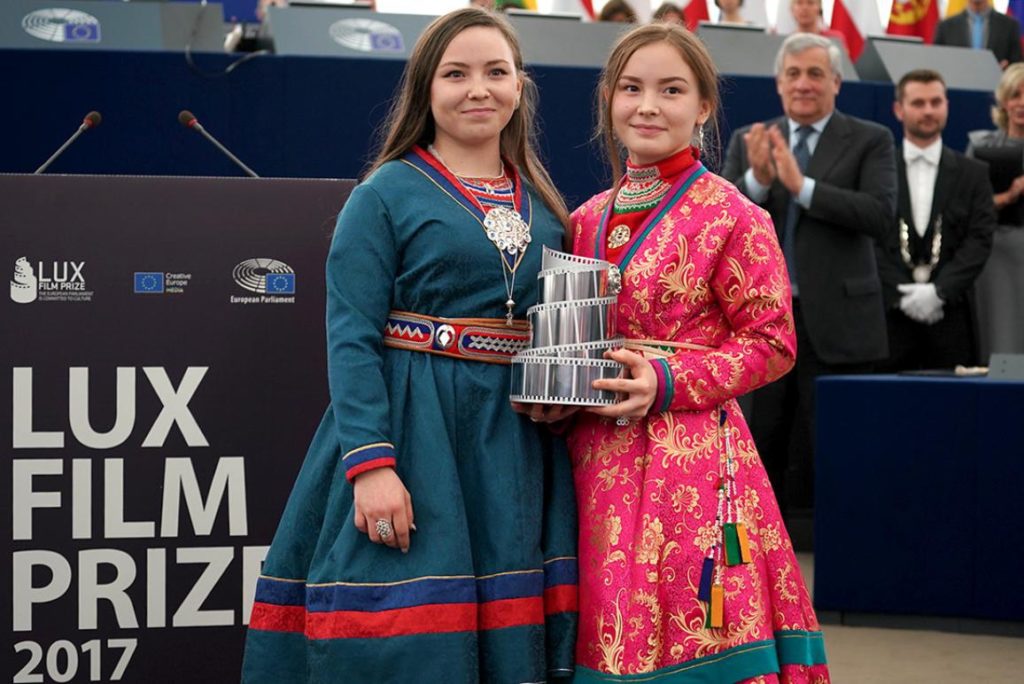Sami blood, a film by Swedish film writer and director Amanda Kernell, was awarded the 11th LUX Film Prize, European Parliament President Antonio Tajani announced in Strasbourg on Tuesday. The film was one of three films competing for the Parliament’s 2017 Lux Prize. The other two films are BPM – Beats per Minute, by Robin Campillo, France, and Western, by Valeska Grisebach, Germany. The Lux film prize, established in 2007, is awarded by the European Parliament to enhance the distribution of quality films and European debate. The winner is chosen by the members of the parliament.
The films were selected among more than 70 films by 21 films experts and must illustrate the diversity of European traditions and shed light on the process of European integration. The three films have recently been screened at the European Parliament and at Bozar in Brussels.
The Swedish film deals with racism and discrimination in the 30-ies of the Sami population, an indigenous minority in Sweden and the other Nordic countries. It’s a moving film about identity and self-hate set in the landscape of Lapland in the north of Sweden.
Amanda Kernell, with as Sami father and Swedish mother, was born in 1986 and graduated from the National Film School of Denmark in 2013. She has chosen a topic that has been repressed among the Sami themselves and it was high time that someone should make a film about this period and the lessons learned for the attitude today to minorities and identity.
In the 30-ies Sami children were taken from their parents to so-called nomadic schools where they were forbidden to use their mother language and only taught basic knowledge in Swedish, Christianity and other topics.
Sweden, inspired by Nazi racist “research”, had established an Institute in Uppsala for “race hygiene”, whose staff visited the schools to carry out racist measurements of the pupils.
The main character in the film, Elle Marja, wants to continue her studies but is being rejected by her teacher. After the humiliating measurements in the school and after having been victimized by the Swedish neighbors she has to find her own way and identity. The film shows her as young girl and as an elderly woman returning to her roots.
The film is in Swedish and Sami and subtitled in English and French. Today Sami is a recognized minority language in Sweden but only a minority of the up to 20 000 Sami population know Sami or are using it as a daily language according to estimates.
M.Apelblat
The Brussels Times

